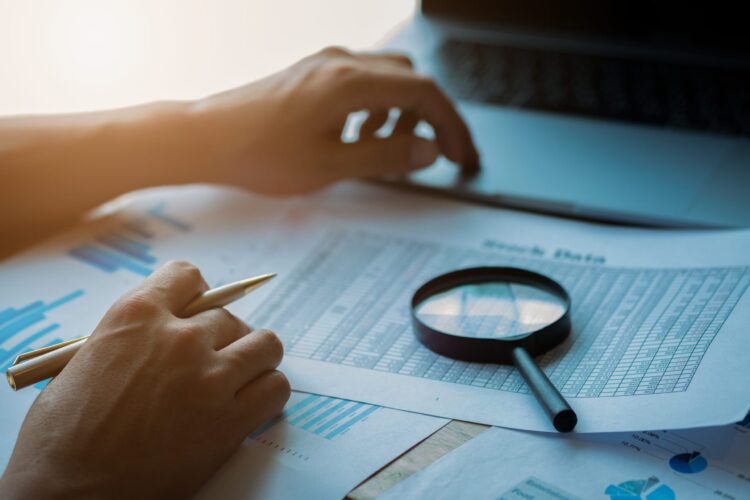It’s no longer news that you’re expected to do a tax report as a crypto trader. As complicated as tax and crypto can be, it gets more difficult when you are an active trader and wait till the year-end before doing any tax reporting activities. The process could get costlier and more tedious than you want. This article covers 7 things that should be done to make things easier and faster regarding crypto accounting.

Page Contents
Here are The 7 Crypto Tax Accounting Tips You Need To Know:
Start Early
Crypto and tax are difficult to understand for many people. If you dive into other digital assets, filing taxes and explaining trading activities to an outsider gets more complicated. So it’s essential to start early when collecting data about tax.
Don’t wait six months or a year before you start preparing your data. Although you can get away with reporting late, it’s better to avoid risk, especially if you are one of those who trade actively on many digital assets and coins.
To save time, you can use crypto tax accounting software. Many tax software will do a fine job if you trade once or twice a month or a few times a year. However, don’t rely too much on them if you are engaged in crypto mining and daily trading. Talk to a crypto tax accountant to avoid mistakes.

Source: bankrate.com
Why is it better to talk to a professional before you start trading? That short meeting can save you hours of work at the end of the month or year when you need to file for taxes.
Work With A Tax Accountant Who Has Real Experience in Virtual Currencies
Hiring a professional accountant isn’t enough. Your accountant should be able to cover the problematic areas of crypto accounting that most people don’t understand.
You need to work with someone active in the industry or who understands virtual currencies greatly. You can tell if someone is involved by their investment portfolio. The crypto tax accountant must have experience reporting tax loss and gain. This area is usually complex for professionals who aren’t vast with crypto trading.
You can ask other crypto traders for recommendations if you can’t find a crypto tax accountant with actual experience in crypto trading.
Understand The Basics Of Crypto Tax Reporting
The Internal Revenue Service has basic requirements for tax reporting. Although you need more than the basics to understand tax accounting in cryptocurrency, it helps if you know when things are wrong. You might not know what’s best for crypto tax accounting, but you should understand when something is entirely unlawful.
Keep Data And Transactions Organized
It will be harder to collect your data and file for tax if your trading and transactions are all over the place. Using different exchanges will increase the time for filing taxes. The cost of hiring an accountant will go up. If you’re using cryptocurrency tax accounting software, there is a risk of error when your data aren’t organized.
That’s why we recommend using one exchange and sticking with them. However, we know this can be hard if you are a trader and want the best offers at all times.
Keep your transactions organized. When it’s time to study your data, provide all the details in one place.
Find Software That Fits Your Needs

Source: olive.app
It looks simple, but many people need to pay attention to this advice. The right software will save time, automate some of your tax requirements, and easily store data. If you choose the wrong tool, however, it is possible to fail to record some of your taxes, make it challenging to manage your investment portfolio, or be costlier than expected.
So, how do you know the software is good for you?
Look at the software’s features and compare them with your trading activities. Ensure they are the best match in those crypto investments and trading you do. You can ask for recommendations from your crypto tax account or friends.
Ask The Right Questions When Hiring A Crypto Tax Accountant
Like software, not every professional tax accountant fits your needs as a crypto trader or holder. You need an expert in this industry. These are some of the questions you should ask the professional before hiring them:
- Do you understand crypto income? What counts as crypto income?
- Have you worked with crypto clients before? Are you a crypto trader?
- Can you describe your process for filing crypto tax?
- What crypto activities are taxable? What crypto investments or activities are tax-free?
- What should I do if I have been trading for years and haven’t filed for tax?
The Crypto CPA should provide convincing and viable answers to each question. Ask for proof if they have any.
Do Not Seek Generic Answers To Specific Problems
If you ask questions about crypto tax accounting online, do not use the answers to solve specific tax activities for your investment. To clarify, no one understands your investment as much as a professional accountant. Generic advice can be helpful, but not always. Hire a professional when you have specific questions that you need to handle. It will cost some money, but it will be wiser and safer in the long run.
Your Best Bet Is A Professional Crypto Tax Accountant

Source: donnellytaxlaw.com
The accountant’s job is to ensure you are doing things right and that you make the most of your time, work, and investment portfolio. Hiring the right person is like getting all your tax needs in one place without stressing about other things. The accountant is your support.
Author Bio:Mark Robert Buckingham is a Crypto tax accountant and founder of www.ResultsTaxAccountants.com. He’s on a mission to help crypto investors, traders, DeFi participants, miners and businesses avoid crypto tax and accounting headaches and frustrations. Mark’s free Cut-Your-Crypto tax blog is: www.ResultsTaxAccountants.com/blog.





